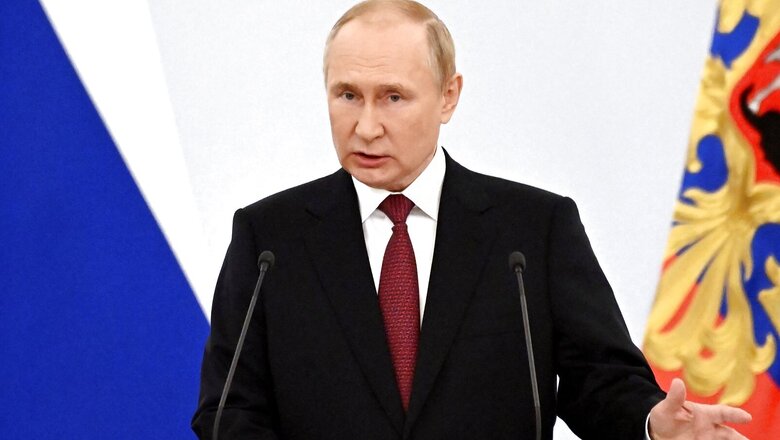
views
The current fratricidal war between Russia and Ukraine is raising a potent question of whether the world is entering into a Third World War? In this regard, some of the statements emanating from both Moscow and Kyiv along with the West are raising this hypothetical question. However, the question is whether both Russia and Ukraine will indulge in the use of nuclear weapons against each other? The apprehensions for a tactical limited nuclear warfare can be evident from the speech delivered by President Vladimir Putin to celebrate the “accession” of four regions of Ukraine-Zaporozhye, Kherson, Donetsk and Lugansk of Ukraine 2022 along with bringing the Zaporizhzhia nuclear plant under Russia’s control on September 30.
Launching a scathing attack on the West for the present impasse, Putin stated that “The West is counting on impunity…. firm promises not to expand NATO to the east gave way to dirty deception as soon as our former leaders bought into them; missile defence, intermediate-range and shorter-range missile treaties have been unilaterally dismantled under far-fetched pretexts”. In the same speech, Putin further underlined that Russian “accessioned” the four regions into its territories after what he termed as “because this is the will of millions of people”. He also reminded about the nuclear holocaust being perpetrated by the West during the Second World war.
Continuing his tirade against the West in another speech, Putin on October 27, at the Valdai Club, blamed the West for its “provocation” for a nuclear war and he called “representatives of the United States and the United Kingdom are making statements with suggestions of the possible use of nuclear weapons”.
What one can underline from both the speeches of President Putin is that the present war between Moscow and Kyiv can be looked at from the prisms of a new form of “security dilemma” a phrase that gained prominence during the Cold War period. From the above strategic trajectories one can contextualise the present situation in the so-called “Eurasian heartland” to the Second World War as argued by Cold War historians that the control over the “Mediterranean” and Soviet Union’s attack on Poland and Baltic region and later on the Nordic region are key factors responsible for escalation into the Second World War.
The implications of the war between Russia and Ukraine are manifold. For instance, Ukraine’s attack on the strategically important Kerch bridge, which connects with Crimea and Russia also retaliated with a missile attack on four Ukrainian cities including the capital Kyiv. Similarly, as reports suggest, Russia also started attacking the infrastructural facilities of Kyiv including water and heating system. The war has been further escalated as Ukraine has also launched a lethal attack on the Black Sea Freight manning the crucial chokepoints of Sea of Azov and the Mediterranean Sea.
As retaliation, Russia stopped supply of foodgrains to the global market. Some of these strategic developments demonstrate Russia’s war with Ukraine has entered into a crucial phase where the future hinges on uncertainty.
It is a fact that during the Second World War, the spill over effect of the war between Russia and Ukraine is also being felt in the neighbouring East European countries, the Baltic as well as in the Nordic countries. In the meantime, the US Army’s 101st Airborne Division is conducting a military drill near the Ukrainian border in Romania as part of NATO exercises as news reports suggest. Similarly, both France and Spain have also stepped up their military presence in Romania as part of NATO. Thus, in all likelihood, Romania is going to be the vantage point for NATO for its war against Russia. Similarly, calling Russia’s referendum in the four “acceded” regions as “sham”, NATO in an official communique stated “referenda in these regions were engineered in Moscow and imposed on Ukraine”. The statement of NATO of the situation reminds one of the Second World War when Germany attacked Romania’s oil field.
It is fact that if the NATO troops cross the line of Eastern Europe, then it certainly escalates into a Third World War. This both NATO and Russian leaderships knew well. Even President Putin has made a statement in this regard. He stated “when the territorial integrity of our country is threatened, we will obviously use all the means we have at our disposal to protect Russia and our people.” This statement is a clear indication that Russia is mulling of taking stronger measures as a last resort in case the war escalates.
Similarly, the Biden administration has also responded to Putin’s threat as stated by Secretary of State Antony J. Blinken underlined “that the consequences would be horrific”. On the other hand, Russia’s Foreign Minister Sergey Lavrov draw a “parallel” to the present crisis with the 1962 Cuban missile crisis when he stated “I hope that in today’s situation, President Joe Biden will have more opportunities to understand who gives orders and how”.
The talk between Russia and Ukraine is ruled out at present as one of the preconditions of the talk is that Ukraine as President Putin stated should “accept the new territorial realities” (hinting at recognising the accession of four regions of Ukrainian territories into Russia) which is not acceptable to Ukraine. Hence, bilateral negotiation between two countries looking at the prevailing condition is ruled out. Though there is a spate of resolutions adopted by the United Nations to bring out an amicable solution to the crisis but it is hardly implemented.
Another important aspect that needs a closer scrutiny is the recession which is currently affecting the global economy in general, and more prominently, the European Union is seeing the rise in energy prices along with the food crisis largely due to the Russia-Ukraine war. The supply disruption of both occurred due to the war in the post-Soviet Slavic space. Already Europe is approaching winter when the energy demand will be high and there is a growing apprehension as to what will happen if Russia will stop the supply of energy to Europe.
The Europe Union (EU)’s energy crisis was aptly reflected in The State of the Energy Union report published in October 2022.The report underlines that because of the present Russia-Ukraine War the gas imports from Russia to the EU fell substantially. As the Report highlights, “The share of Russian pipeline gas in EU imports went down from 41% in 2021 to 9% in September 2022”. The report further said, “Gazprom has gradually reduced gas flows by Nord Stream 1 to zero by the beginning of September, and the recent incidents regarding Nord Stream 1 and 2 have been another wake-up call for the EU to strengthen the security of supply and to increase preparedness to tackle serious disruption scenarios”.
The report can be understood in the context of the growing crisis the EU countries are facing because of the disruption of the supply of energy due to the war. This is causing soaring energy prices thus affecting common people. As per an EU study, the “energy price is increasing by up to 30 %”. The soaring energy prices and scarce supply of energy are generating a sense of uneasiness among the common people. Even as reported, people in France and Germany demanded a slash in gas prices along with an adequate supply of the same. A study by World Economic Forum (WEF) titled ‘Inflation: How are Rising Food and Energy Prices Affecting the Economy?’ highlights that there will be a staggering rise in energy prices in “2022 up to 50%”.
In this regard, the WEF article adds that because of the rise in energy prices there is a growing recession in the world economy, which is why the food crisis is escalating.
Meanwhile, Europe, particularly Germany, is the hardest hit due to the present war in terms of accessing energy is in a difficult situation. While through Nord Stream 1 pipeline Russia is refusing to export energy since September 2022 citing “damage” which Russian policy makers attribute due to “terrorist attack” at the same time it is eager to export the energy through Nord Stream 2 which the German so far refused to access energy through this route. This is becoming a new “geopolitical flashpoint”. As stated by President Putin “the ball was in the EU’s court…. If they want to, then the taps can be turned on and that’s it”.
Already the energy prices in Europe are soaring as discussed above which also affects the meeting of the basic necessities of the common people. Along with energy, food prices in Europe and other parts of the world are increasing largely due to scarcity of food supplies. If the situation prolongs further, then it may contribute to an economic depression.
Many scholarly studies suggest that the Great Depression which shook the West since the 1920s played a major factor in the onset of the Second World War. As Heywood Felisa in an interesting article titled ‘War-Related Debts and the Great Depression’ published in The American Economic Review, 1976, underlines “crop failures, the effects of foreign recessions, errors in domestic economic policy” (p.63) are some of the factors which contributed to the Second World War. In this regard, one can draw similar parallels in the context of the Russia-Ukraine war and the Second World War. International Monetary Fund on October 14, 2022 in underlined “Russia’s war against Ukraine, is weighing heavily on economic activity with significant impact on livelihoods”.
If there will be an all-out war between Russia and Ukraine it is going to have an impact on the global economy as well as the security. In this context, the consequences might have been felt in India also. As India imports energy and fertilisers from Russia, there is a need to import both the products in large quantities. At the same time, the Russia-Ukraine war also brought India to the forefront of global diplomacy. India consistently advocated the need for “dialogue” between both Russia and Ukraine to resolve the War. India is also engaging with both Russia and Ukraine to de-escalate the situation.
As Prime Minister Narendra Modi told President Putin during his interaction on the sidelines of the SCO Summit at Samarkand in September 2022 “today’s era is not an era of war”. This message of Modi to Putin is a clear signal that India wants that through “mediation” and “peaceful negotiation” the war between Russia-Ukraine can be resolved. Similarly, in the 77th UN General Assembly Address, External Affairs Minister S Jaishankar underlined “as the Ukraine conflict continues…we are often asked whose side are we on and our answer each time is straight and honest: India is on the side of peace and will remain firmly there. We are on the side that respects the UN charter and its founding principles”.
The speech of both PM Modi and Jaishankar is a reflection of India’s commitment to bringing peace between Russia and Ukraine.
Though the situation in the Slavic geopolitical space of Eurasia appears to be quite volatile, following measures can bring peace between Moscow and Kyiv.
a) United Nations should play a pro-active role to mediate between Russia and Ukraine.
b) NATO including the West should disassociate both covertly and overtly in the present war between Kyiv and Moscow. As Moscow is quite apprehensive of NATO’s move.
c) Both Russia and Ukraine should initiate measures including bilateral talks so that there will be no disruption of food supply as well as energy to the international market. Innocent people are suffering because of lack of energy and food due to war.
Looking at the present course of the Russia-Ukraine war in the “Eurasian Heartland” as well as its ramification in Eastern Europe, one cannot rule out the onset of a Third World War in near future. Time is running out, hopefully, Russia, Ukraine, the US and NATO will apply prudence and pragmatism rather than strategic imagination in bringing out a peaceful resolution to the War.
The author teaches at the School of International Studies, Jawaharlal Nehru University, New Delhi. The views expressed in this article are those of the author and do not represent the stand of this publication.
Read all the Latest Opinions here











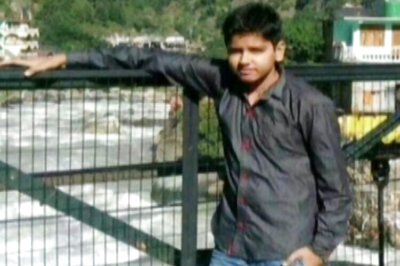
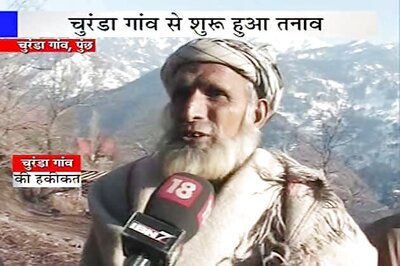


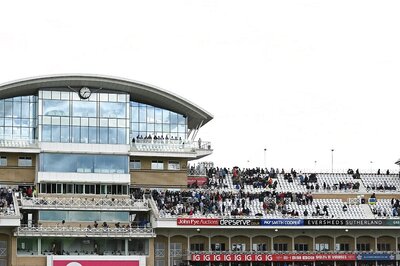
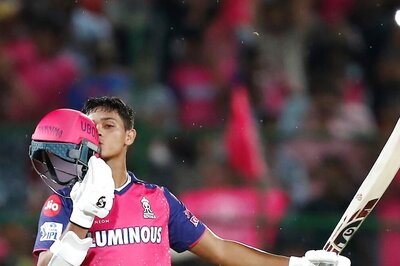

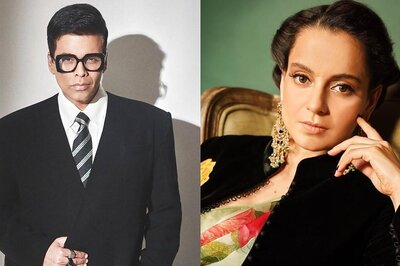

Comments
0 comment